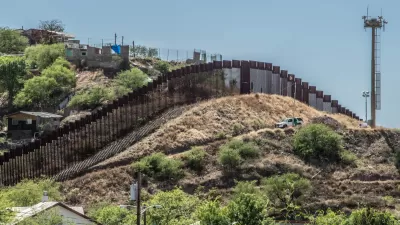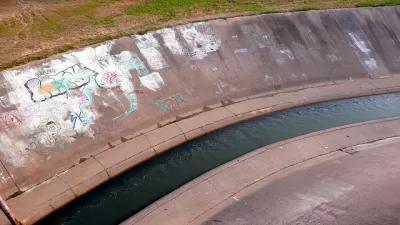President Trump has fallen short of 2016 promises to update and upgrade the key infrastructure of the United States, according to this article.

Jeff Stein provides analysis and commentary on the track record of the Trump administration on infrastructure—one of the key planks of the platform that won the president the election in 2016, but has since become a punchline for pundits.
Trump can claim credit for pursuing and at least partially fulfilling many of his key 2016 economic campaign pledges, such as cutting taxes, slashing government regulations and revamping America’s international trade deals. But on one central part of his economic pledge — a massive infrastructure package — the president has much less to boast of on the campaign trail.
The evidence backing this accusation includes receipts:
Trump has through four years in office failed to advance infrastructure legislation through Congress. Under his administration, federal investments on roads and bridges as a share of the economy have remained stagnant, while federal spending on water infrastructure projects have fallen to a 30-year low.
For the counterargument, Stein cites Trump's speeches on the campaign trail in 2020, where the president talks about the border wall ("We consider that infrastructure," said the president at the Economic Club of New York earlier this month) and the deregulatory accomplishments of the administration, which have reduced environmental review for infrastructure projects.
Stein finds many blue collar workers in battle ground states who are more interested in the lack of spending for infrastructure (Trump promised as much as $2 trillion in spending) and bureaucratic drag on other projects, even before the pandemic proved inadequate to inspire action by Republican leadership as it lingered past the summer.
FULL STORY: Trump’s 2016 campaign pledges on infrastructure have fallen short, creating opening for Biden

Planetizen Federal Action Tracker
A weekly monitor of how Trump’s orders and actions are impacting planners and planning in America.

Congressman Proposes Bill to Rename DC Metro “Trump Train”
The Make Autorail Great Again Act would withhold federal funding to the system until the Washington Metropolitan Area Transit Authority (WMATA), rebrands as the Washington Metropolitan Authority for Greater Access (WMAGA).

The Simple Legislative Tool Transforming Vacant Downtowns
In California, Michigan and Georgia, an easy win is bringing dollars — and delight — back to city centers.

The States Losing Rural Delivery Rooms at an Alarming Pace
In some states, as few as 9% of rural hospitals still deliver babies. As a result, rising pre-term births, no adequate pre-term care and "harrowing" close calls are a growing reality.

The Small South Asian Republic Going all in on EVs
Thanks to one simple policy change less than five years ago, 65% of new cars in this Himalayan country are now electric.

DC Backpedals on Bike Lane Protection, Swaps Barriers for Paint
Citing aesthetic concerns, the city is removing the concrete barriers and flexposts that once separated Arizona Avenue cyclists from motor vehicles.
Urban Design for Planners 1: Software Tools
This six-course series explores essential urban design concepts using open source software and equips planners with the tools they need to participate fully in the urban design process.
Planning for Universal Design
Learn the tools for implementing Universal Design in planning regulations.
Smith Gee Studio
City of Charlotte
City of Camden Redevelopment Agency
City of Astoria
Transportation Research & Education Center (TREC) at Portland State University
US High Speed Rail Association
City of Camden Redevelopment Agency
Municipality of Princeton (NJ)





























